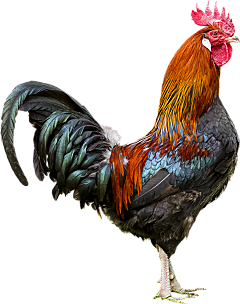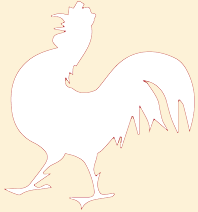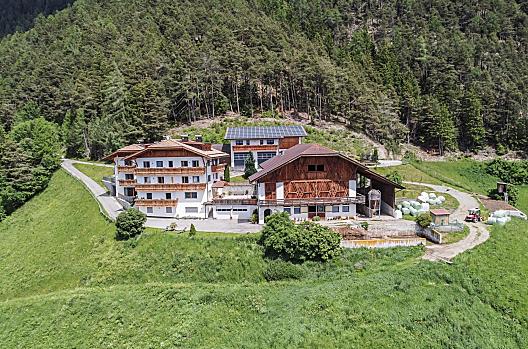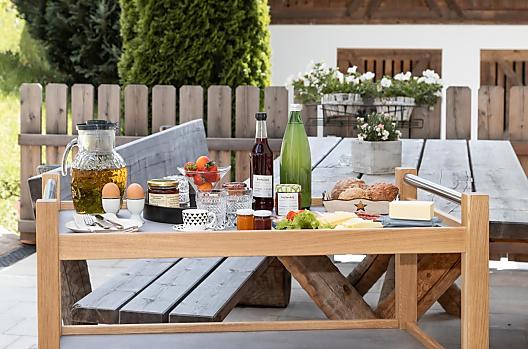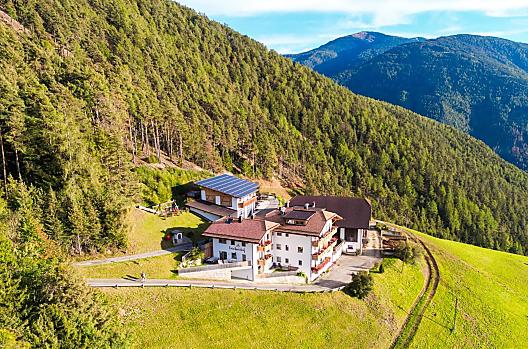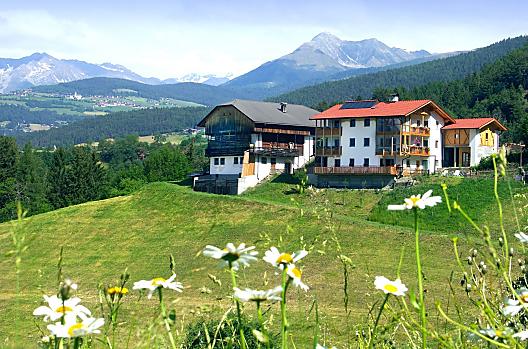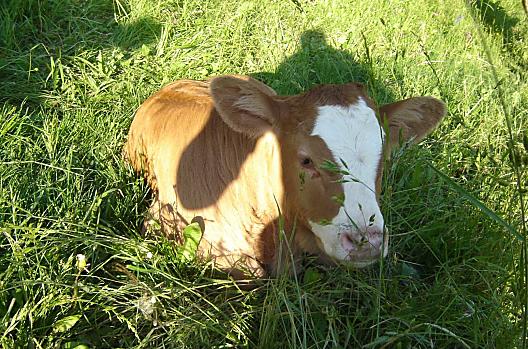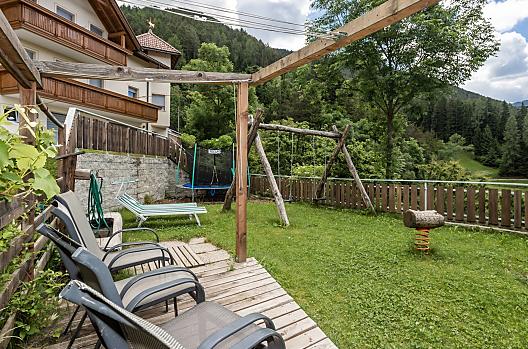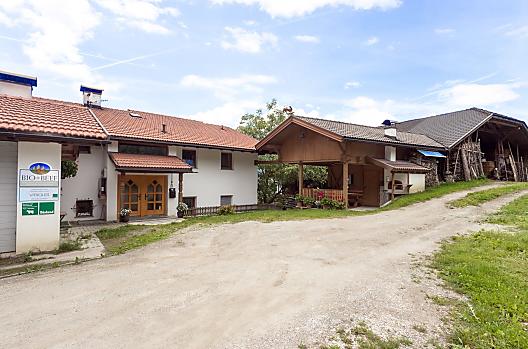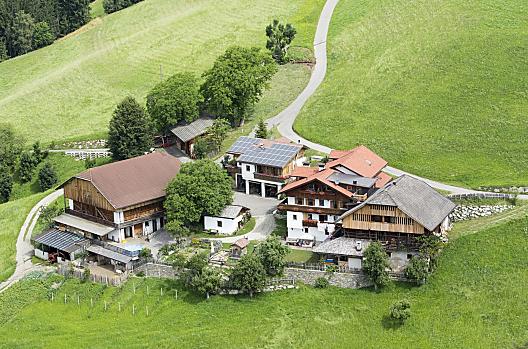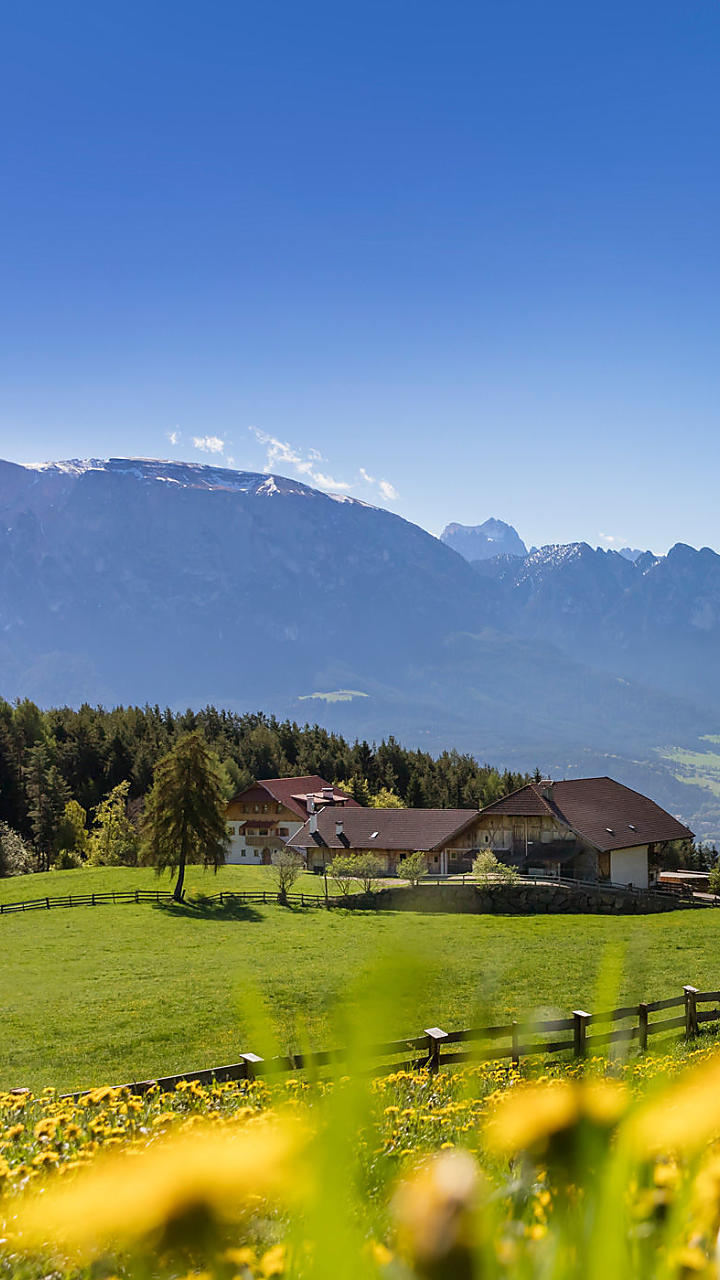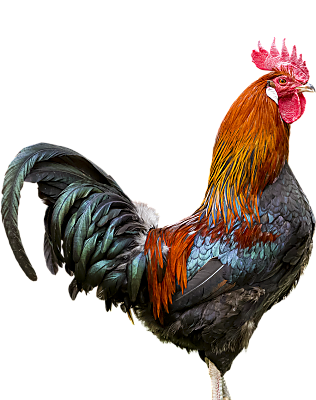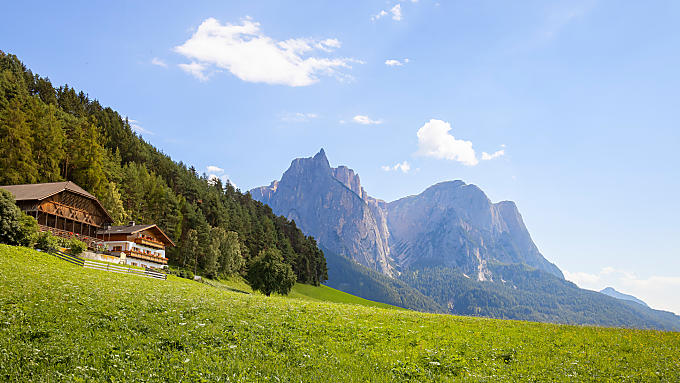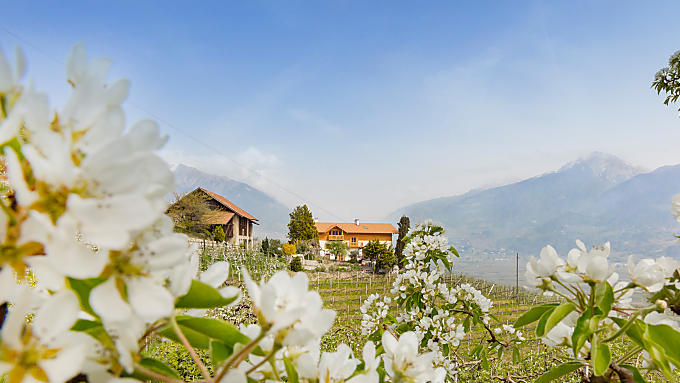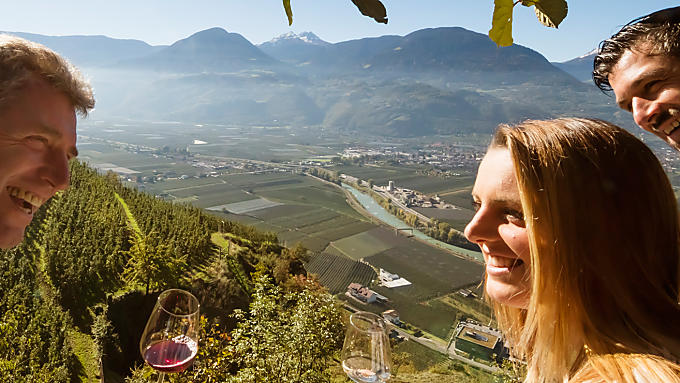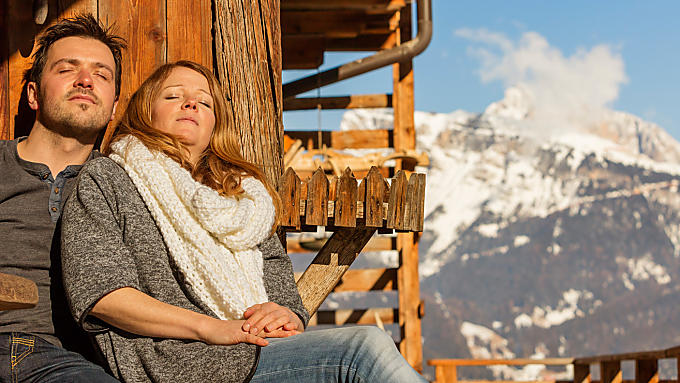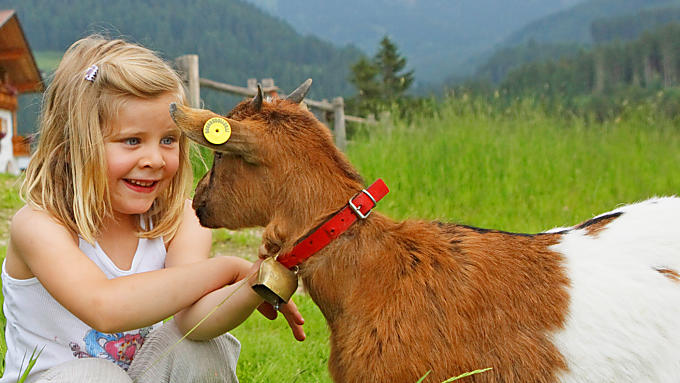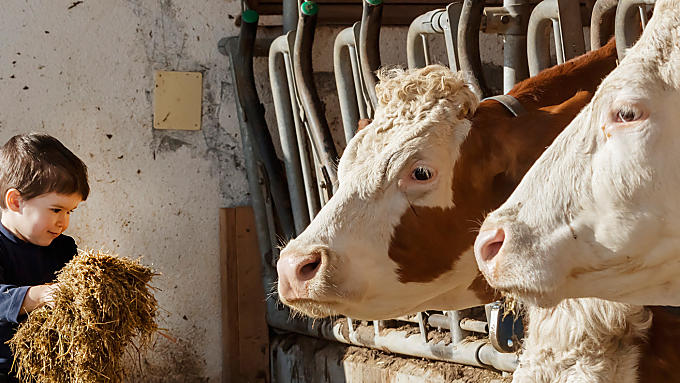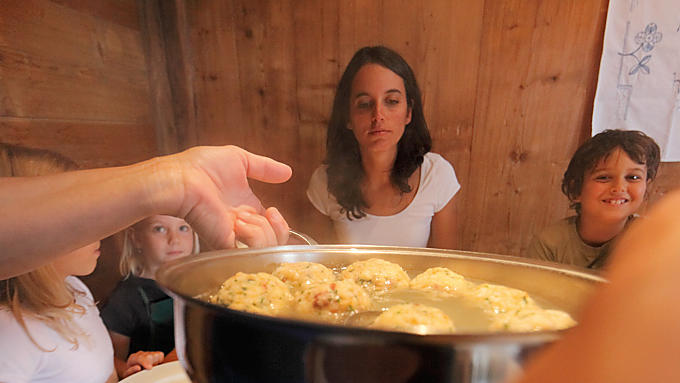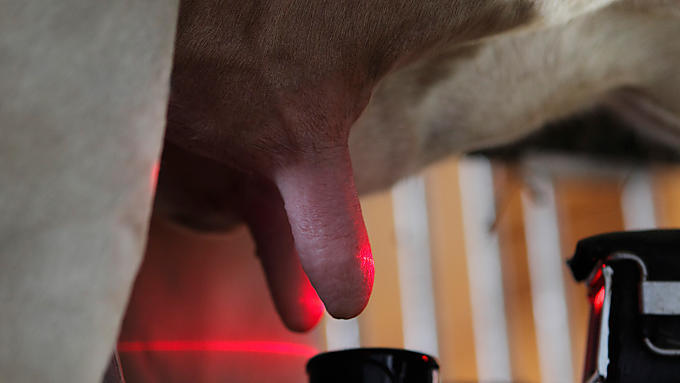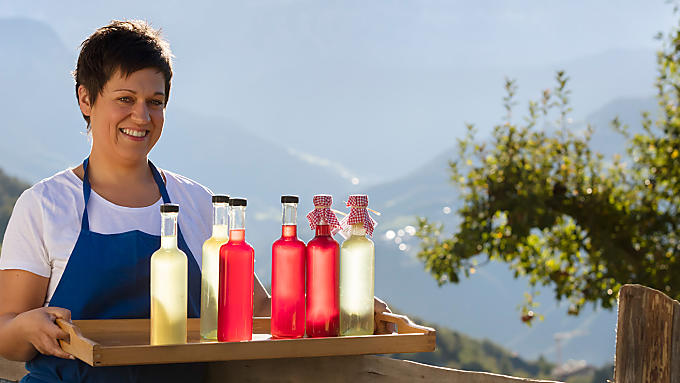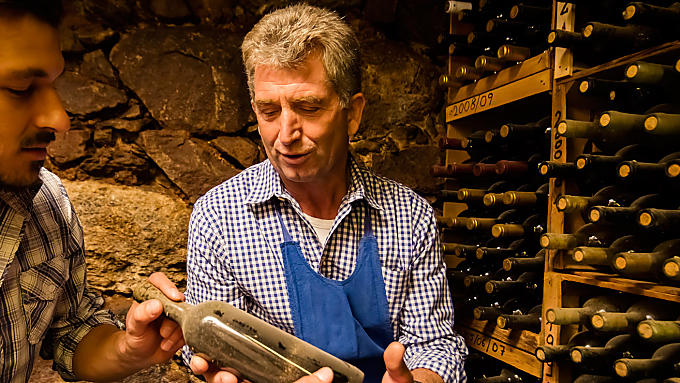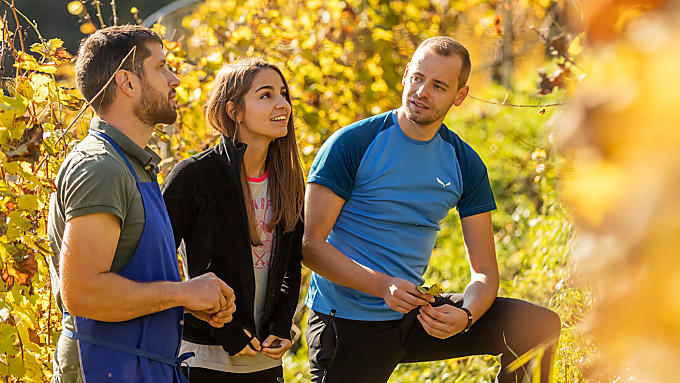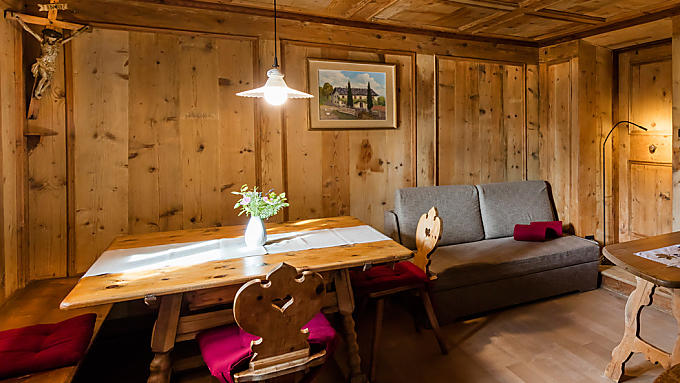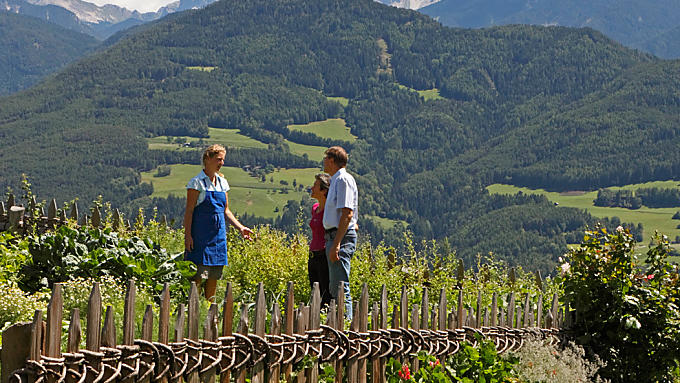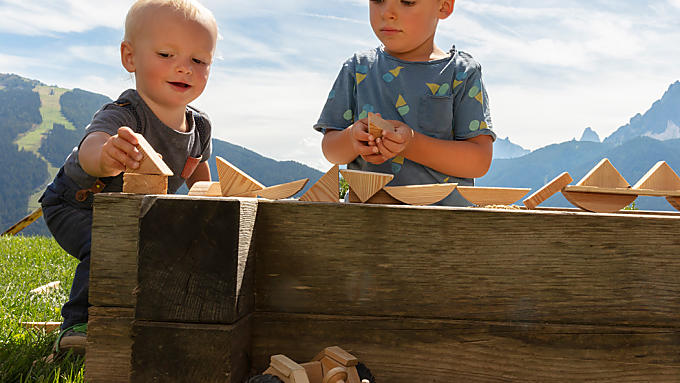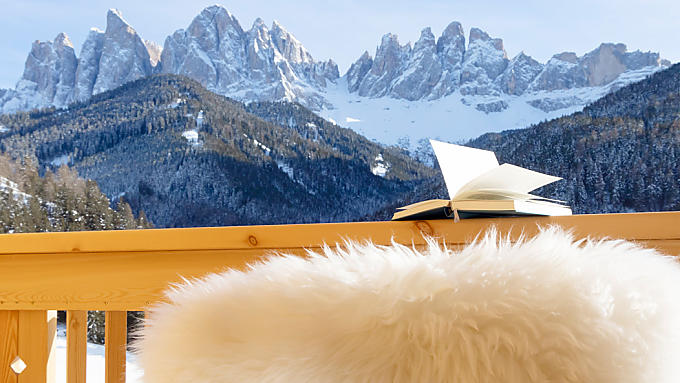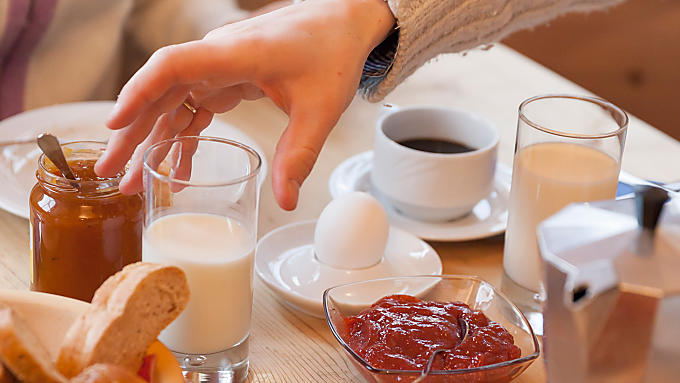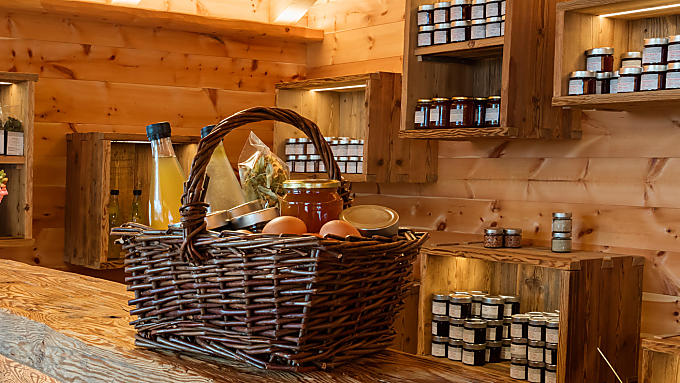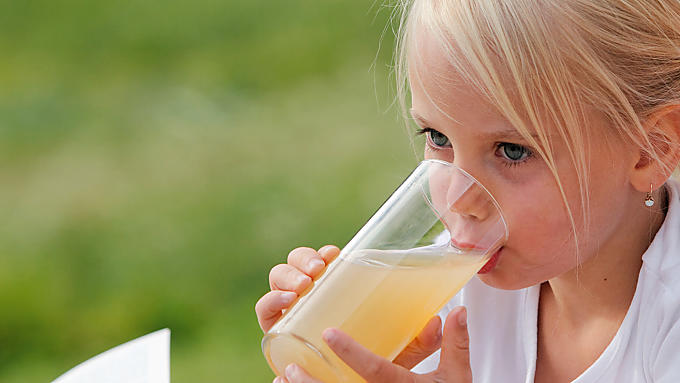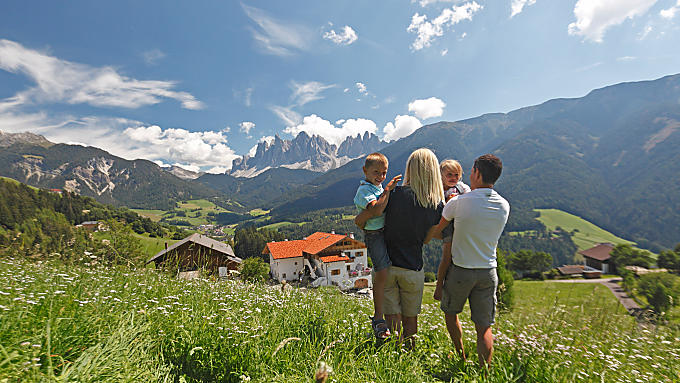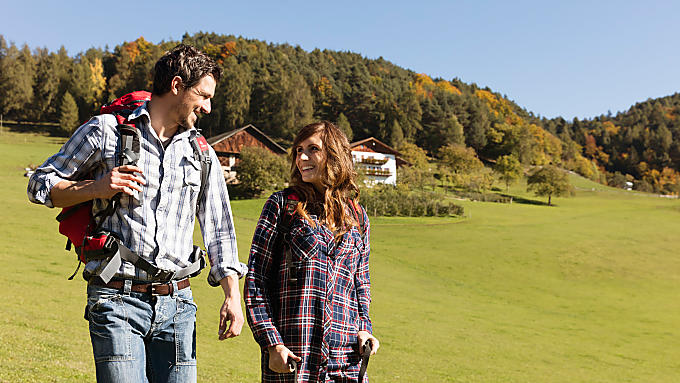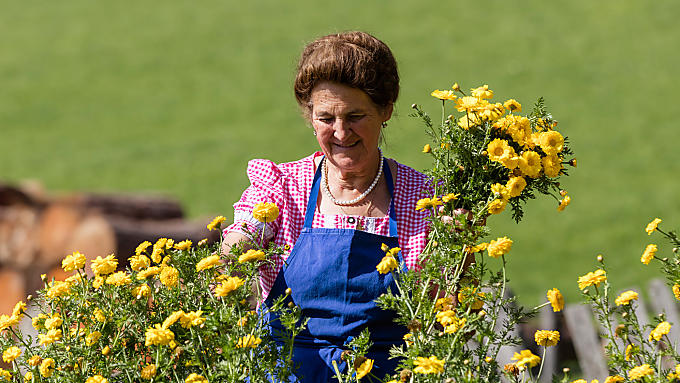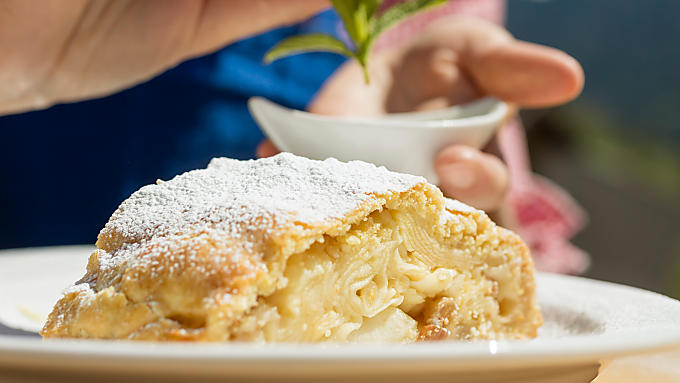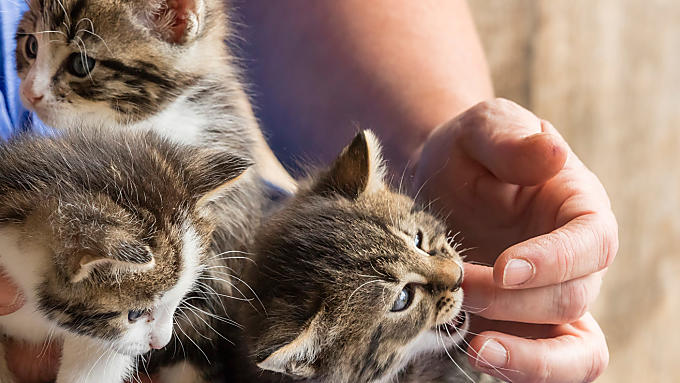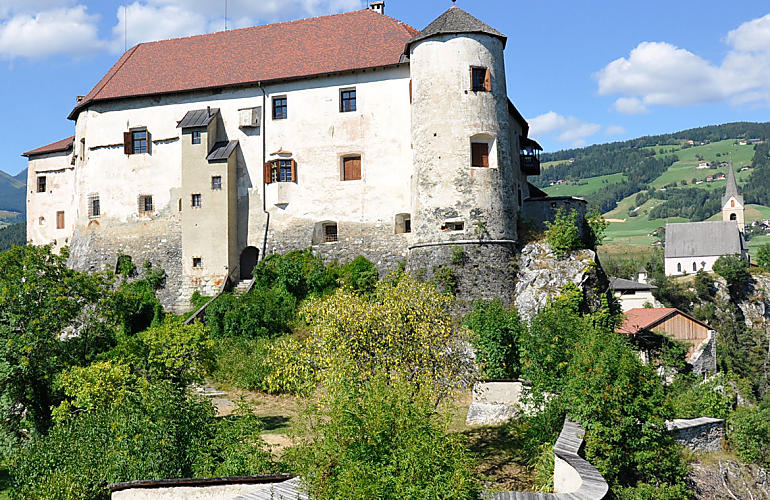
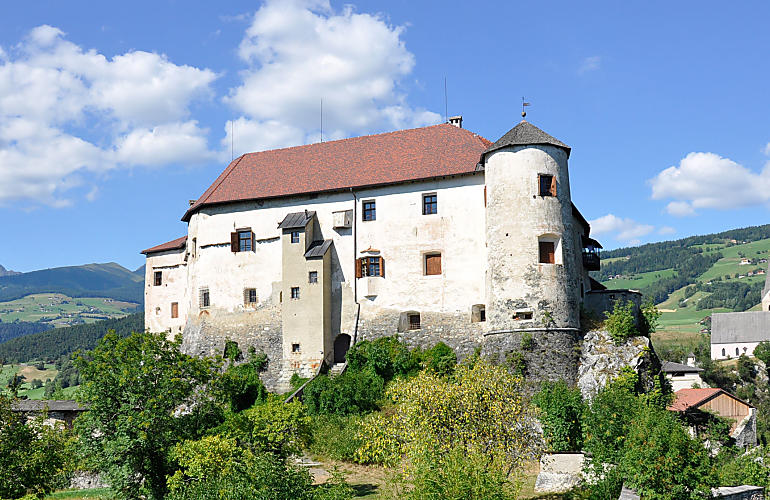
Close to the sun
Holiday location
Farm Holidays in Rodeneck
Peace and quiet rules on a Farm Holiday in Rodeneck. Two highlights are patiently waiting for visitors on the sunny high plateau: Schloss Rodenegg castle and Rodenecker Alm hiking area.
The mountain municipality of Rodeneck enjoys a quiet spot on a low mountain plateau above Eisacktal valley. Here, at an altitude of 800 to 1,200 metres, noisy traffic is far off. Anyone approaching this sunny spot from the Mühlbach direction will be rewarded with views of Schloss Rodenegg castle. Rodenecker Alm hiking country, one of the largest high plateaus in Europe, draws hikers all year round, too.
Peace and quiet rules on a Farm Holiday in Rodeneck. Two highlights are patiently waiting for visitors on the sunny high plateau: Schloss Rodenegg castle and Rodenecker Alm hiking area.
The mountain municipality of Rodeneck enjoys a quiet spot on a low mountain plateau above Eisacktal valley. Here, at an altitude of 800 to 1,200 metres, noisy traffic is far off. Anyone approaching this sunny spot from the Mühlbach direction will be rewarded with views of Schloss Rodenegg castle. Rodenecker Alm hiking country, one of the largest high plateaus in Europe, draws hikers all year round, too.
Magnificent Schloss Rodenegg
Symbol of the parish, Schloss Rodenegg, rises up on a narrow outcrop. The rock that the castle is built on falls steeply away towards the Rienz river gorge – an impressive sight.
Schloss Rodenegg was built as a defensive structure in the first half of the 12th century by the Lords of Rodank. In the 16th century, the family of the Counts of Wolkenstein gave it its current shape and extended it. Still today, it belongs to the ancestors of the well-known poet and singer, Oswald von Wolkenstein. Part of the castle is inhabited, while a museum has been set up in another part.
A trip to the castle is definitely worth it on a Farm Holiday in Rodeneck. A visit will take you to the highlight of the castle – its famous 'Iwein cycle' of frescoes by Hartmann von Aue. This 13th -century cycle was rediscovered in 1972 and is said to be the oldest secular wall painting in the German-speaking area.
The legend of the 'Lauterfresser'
On a tour through the old building, visitors can learn about the legends and sagas woven around Schloss Rodenegg. The most famous of these concerns the notorious sorcerer, Matthäus Perger, also known as Lauterfresser.
This nickname comes from the fact that the sorcerer preferred eating 'lautere', or liquid, meals. This included soups as well as the traditional South Tyrolean dish of 'Mus', which was once food for poor people. This wicked sorcerer was staying as a guest at Burg Rodenegg, wreaking havoc there, until the locals were able to catch him. Along with the armoury and St. Michael's chapel, visitors to the castle today can also view the dungeon that Lauterfresser was held in – the 'Lauterfresser Loch', or 'Lauterfresser pit'. This saga has a grain of historical truth in it: there really was a certain Matthäus Perger. In 1645, he was put on trial at Schloss Rodenegg, condemned to death for witchcraft and burnt at the stake.
Magnificent Schloss Rodenegg
Symbol of the parish, Schloss Rodenegg, rises up on a narrow outcrop. The rock that the castle is built on falls steeply away towards the Rienz river gorge – an impressive sight.
Schloss Rodenegg was built as a defensive structure in the first half of the 12th century by the Lords of Rodank. In the 16th century, the family of the Counts of Wolkenstein gave it its current shape and extended it. Still today, it belongs to the ancestors of the well-known poet and singer, Oswald von Wolkenstein. Part of the castle is inhabited, while a museum has been set up in another part.
A trip to the castle is definitely worth it on a Farm Holiday in Rodeneck. A visit will take you to the highlight of the castle – its famous 'Iwein cycle' of frescoes by Hartmann von Aue. This 13th -century cycle was rediscovered in 1972 and is said to be the oldest secular wall painting in the German-speaking area.
The legend of the 'Lauterfresser'
On a tour through the old building, visitors can learn about the legends and sagas woven around Schloss Rodenegg. The most famous of these concerns the notorious sorcerer, Matthäus Perger, also known as Lauterfresser.
This nickname comes from the fact that the sorcerer preferred eating 'lautere', or liquid, meals. This included soups as well as the traditional South Tyrolean dish of 'Mus', which was once food for poor people. This wicked sorcerer was staying as a guest at Burg Rodenegg, wreaking havoc there, until the locals were able to catch him. Along with the armoury and St. Michael's chapel, visitors to the castle today can also view the dungeon that Lauterfresser was held in – the 'Lauterfresser Loch', or 'Lauterfresser pit'. This saga has a grain of historical truth in it: there really was a certain Matthäus Perger. In 1645, he was put on trial at Schloss Rodenegg, condemned to death for witchcraft and burnt at the stake.
3 reasons
A holiday in Rodeneck
Schloss Rodeneck perches
over Rienz river gorge
Summer and winter dream:
Rodenecker Alm pasture
Sunny, quiet, idyllic:
mountain village above the valley
Rodenecker Alm hiking area
Lauterfresser was said to have got up to mischief on Rodenecker Alm pasture as well as Schloss Rodenegg. This sunny high plateau in the midst of the Lüsner mountains is also known as Lüsner Alm and attracts locals and guests in summer and winter.
Lauterfresser was said to have got up to mischief on Rodenecker Alm pasture as well as Schloss Rodenegg. This sunny high plateau in the midst of the Lüsner mountains is also known as Lüsner Alm and attracts locals and guests in summer and winter.
Mountain lakes, sledge runs and cross-country pistes – a holiday in a holiday flat or room in Rodeneck is ideal for those seeking some holiday action.
A cheese dairy shows how cheese is made on the Rodenecker Alm, while the 'Bienenweg' bee-themed trail explains how busy bees make honey. The lifecycle of bees is displayed at info points and visitors can see the inside of a beehive, followed by honey tasting, of course.

